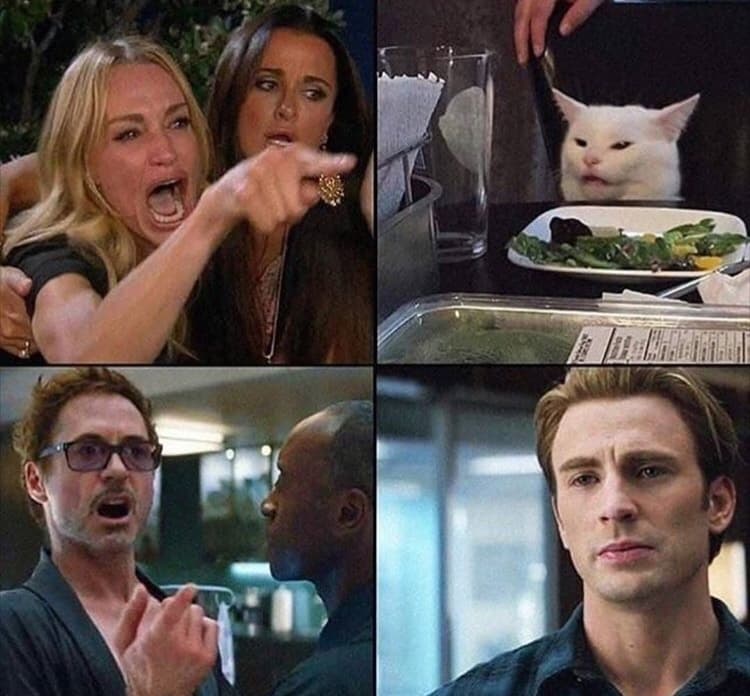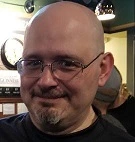If you enjoy this post, please retweet it.
I haven’t spent as much time on Disney+ as I was hoping, but last weekend I took the time to watch Thor: Ragnarök, Infinity War, and Endgame over the course of two days. For reasons that will become apparent, I really wish I had watched Guardians of the Galaxy, Volume 2 (”GotG2”) before Thor: Ragnarök, but I’m remedying that as I type this.
When I first saw these movies, I really enjoyed them (despite never being a comic book reader), but that was an honest, emotional reaction devoid of any intellectual analysis. I just liked them; it was that simple. However, upon second viewings, I have more time to think about them, and they’re getting better and better. There are a few specific scenes that represent what I find surprisingly good about these movies, all of which demonstrate character evolution, but one of which in a way that’s a bit backwards. I’m not an authority on any of these aspects of movie-making, so your mileage may vary. Perhaps wildly. Moreover, I’m a firm believer that art is in the eye of the beholder, so much of this is what I choose to infer from what I hear and see. The Russo brothers and the actors in question may also disagree with me.
Tony Stark’s Funeral
This one was easy for me. I always pay attention to how the music interacts with the movie.
Side note: The DC movies have taken some serious hits among nerd circles, but I imagine that if you pay attention to how that music interacts with those movies, you liked them more than you would otherwise. Music matters.
It was immediately apparent to me that the music in this scene was thematically very similar to the Captain America’s music when he went into the ice. I don’t remember hearing those themes in any other scenes in the MCU unless they related directly to Steve. In Endgame, Steve proved he was worthy to wield Mjolnir. That was his evolution, though according to the Russo’s he had reached that point by Age of Ultron. Stark made a similar jump. He started as a self-absorbed, spoiled brat. Not only did he change into someone we could consider “good” but also sought to make up for his past sins. It wasn’t enough for him not to place the world in danger personally; he wanted to eliminate any danger others created as well (e.g., seeking to place a protective shield around the world).
That said, old habits die hard (as you’ll also see in my second example). Tony never lost his edge, and he made a lot of mistakes because his methods didn’t evolve as quickly as his sensibilities. All he had to work with was his methods from a lifetime of preparing our country for war. Nevertheless, when all was said and done in Endgame, Tony finally completed his evolution. He made the sacrifice play, laid down on a wire, and let the other guy crawl over him. I thought it quite fitting that the music played at his funeral was originally from Steve’s sacrifice.
Tony and Nebula in Space
Gillan’s acting in these scenes was the best I saw in the entire MCU. Is she a better actor than Robert Downey, Jr.? I’m not qualified to say — that guy killed it throughout the entire MCU — but it doesn’t matter. She acted circles around him in these scenes, and I doubt many paid close attention to that. Downey’s mission in those scenes was relatively simple: Convey someone facing death while thinking about what was most important to him. Did he do a good job? Of course. He’s great, and by design, everyone was focused on both Downey as an actor and Stark as a character. These were as much RDJ’s movies and Stark’s stories as anyone else’s, but that means some of us (including me) missed Gillan’s brilliance the first time through. If you did, re-watch it focusing on her.
First, some context. Starting with GotG2, Nebula disclosed to Gamora that all she ever wanted was for them to have a normal, sisterly relationship. I choose to believe that Nebula didn’t realize that until she said it out loud. Later, she was given a quick lesson by Drax on what family means, and then she had to cooperate with former enemies to take down multiple threats. This was all new to her. Every relationship she had had to this point was familial and severely dysfunctional (more than any of us can imagine) or predator-to-prey. She was a horrible person doing horrible things in a social environment giving her no opportunity to even question her behavior, let alone escape it. Now that she was beginning to turn the corner, her next mission in Infinity War was, well, to murder her father. Sure, we can all sort of forgive that under the circumstances, but again, this must have been tough for her to process.
Moving forward to Endgame, it’s clear that Nebula is trying to deal with all these new feelings and philosophies. But now she’s stuck on a ship with Tony, and there’s even more to process. She’s making a friend, which is something she’s never had. The act of shaking hands was alien to her even though it’s a custom clearly not exclusive to Earth in the MCU. She’s playing a game, which is probably something she’s never done. After all, her instinct was to ignore the rules of the game. Win at all costs through aggression. When Tony asked her if it was fun, she had to think about whether it was. What’s “fun”? Again, that’s a foreign concept. Apparently, she figured out all of this, eventually taking the role of a caretaker, giving Tony the remaining food and making him as comfortable as possible while on his deathbed . . . chair. Whatever.
How much of this was intended by Gillan or the Russos? I don’t know, but again, this is what I choose to infer, and I don’t think that’s a coincidence. I hear this in her voice and see it in her face, and that’s my point. For her to convey so much, with so few lines (2 lines with 9 words and 3 grunts), in so few scenes, and burdened with so much toaster oven make up is simply remarkable. I could see even myself pulling off (poorly) a guy facing his impending death. As for what she did, I wouldn’t know where to start. Gems like this are hidden in plain sight throughout the MCU.
Drax and Mantis
In the scene in which Drax tells Mantis she’s “hideous,” he relays a memory of an outing with his daughter. Mantis makes an empathic connection with him and is overwhelmed by his grief, but the entire time, Drax’s face is deadpan. He’s barely showing his emotion. Drax very quickly picked up on human idiosyncrasies, including laughter, frustration, and anger, but this scene showed that the instincts of his species were still strong in him. It changes the way I interpret any of his scenes. He may not be expressing emotion, but I’m encouraged to infer them from the context, and they can be powerful. It allows me to make the movie my own. Again, art is in the eye of the beholder.
The actual reason I mention this scene, though, is so that I can say that Dave Bautista was the actor that impressed me the most. He’s no Al Pacino, but I didn’t expect him to be any good at all. Most pro wrestlers that jumped into acting have been far less than impressive — Dwayne Johnson is a notable exception — but he brought it in every single scene he shot. He was given great lines and made the most of them. “Why is Gamora?” was actually improvised. That’s all him.
These aren’t very detailed analyses, and these scenes only scratch the surface of the MCU’s magnificence. There were many other connections drawn with the music, there are plenty of actors that acted their asses off playing secondary characters, and there were several actors new to me that were surprisingly good. However, considering the length of my last few posts on copyright, I suspect you’re all happy with the relative brevity. Besides, my views aren’t to be taken too seriously. I’m not an actor or filmmaker, so what do I know?
I just know what I like.
When you watch them again, maybe you’ll see some things you didn’t see before. I have a lot more to watch.
Follow me @GSLLC (please retweet!)
Follow Marvel @Marvel
Follow Robert Downey, Jr. @RobertDowneyJr
Follow Karen Gillan @karengillan
Follow Dave Bautista @DaveBautista


